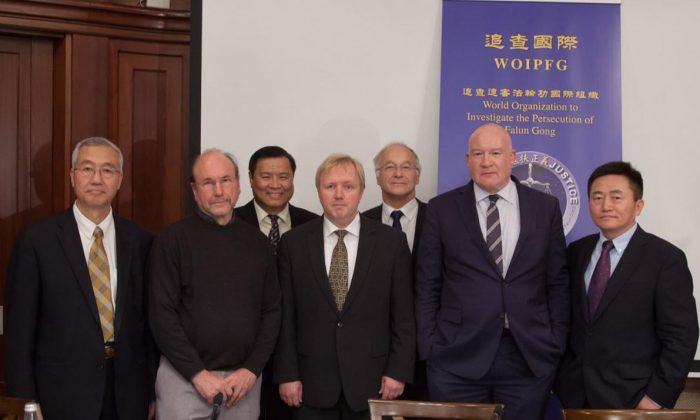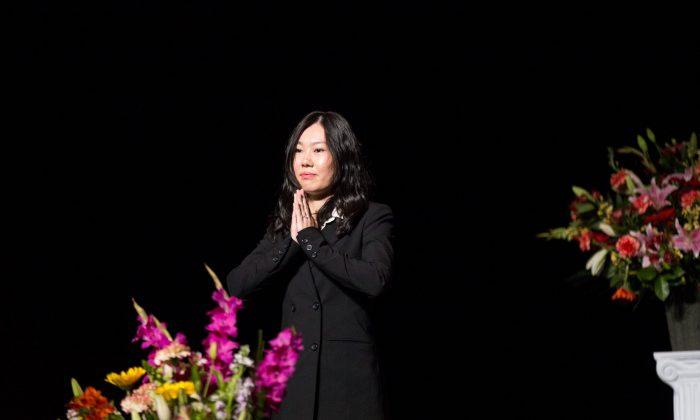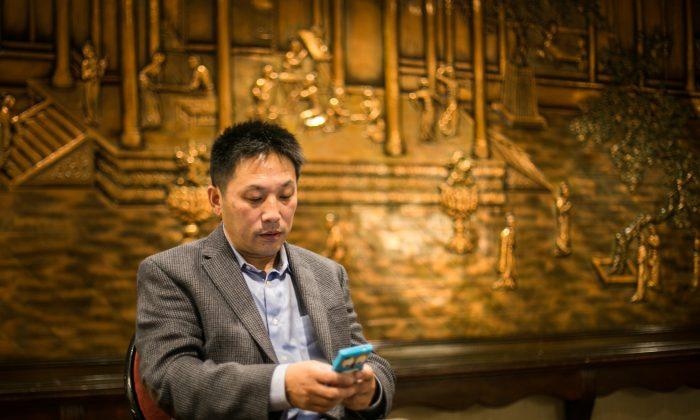The Chinese authorities have shot themselves in the foot with their heavy-handed response to calls for a Chinese “Jasmine Revolution,” according to the revolutionaries themselves.
In an e-mail interview in English with The Epoch Times a male in his late 20s calling himself “Gracchus,” a core member of the group, said that the Western media has failed to understand the impact that calls in China for a Jasmine Revolution are having.
The announcement calling for peaceful strolls at major cities in China every Sunday afternoon, and the Chinese Communist Party’s (CCP) paranoid response, has actually helped the revolutionaries’ cause, he says.
For example, an open letter the organizers sent to China’s youth on March 5 resulted in blockades of university campuses by security forces across the country. “This unusual treatment almost certainly antagonizes the young energies and triggers their curiosity to explore the cause,” Gracchus wrote.
Gracchus calls himself and his peers “dedicated and professional revolutionaries for constitutional democracy.” They are small in number and located in China and the United States. Gracchus would not say where he was. “We don’t have a hierarchical structure; everyone is dedicated with high-level group coherency.”
Though only a few have come to the streets for fear of persecution, this does not indicate the total impact.
“In the world’s largest police state where civil liberties are more jeopardized than those in Iran, vibrancy at the start of social movement is not indicated by the number of people flushing around political centers, but by the loosening of fears at an increasing degree, which nevertheless breeds the impetus for social change,” Gracchus wrote.
They are also in contact with “high-level reform-minded Party members,” who suggested that the people who were temporarily detained for their strolling activities will not come to great harm, because they are not organizers of the movement.
The name Gracchus may come from a Roman politician who threatened the interests of a landed elite in the second century B.C. He was murdered. Gracchus says that if he or his colleagues were caught, they would be punished with life imprisonment. “Our motivation, like others, comes from our love for the country,” he wrote. They receive Trojan horse viruses in e-mail attachments, presumably sent by Chinese state agents, on a daily basis.
For now their goal is simply to maintain momentum for nonviolent strolling, and hope a major event will take place “in the near future” that will catalyze public support. This “near future” could be within one to three years, Gracchus said.
“The West will soon be amazed again by its poor prediction in political analysis,” Gracchus wrote. “The level of dissatisfaction is high enough, but many people who are dissatisfied (victims of various sorts) still have blind hopes. … That’s why they appeal in Beijing.”
The reluctance of Chinese people to blame their problems on the system will change as time passes, he wrote. “They have not fully recognized that the only root cause is the regime. It takes time; and the number of victims is drastically increasing across the country. Once all hopes are crushed, their only appeal is regime change,” Gracchus wrote.
Read More . . . Regime Change
He says this is a natural process, and can already be seen in action. A notable example is Hu Jia, “He started as an environmentalist and later becomes a kind of advocate for regime change.”
Optimism about the current direction of the country is misplaced, he said in a later email. “The pattern of China’s domestic ‘development’ has been the state power (kidnapped by elitists for self gain) to suppress the growth of civil society at the cost of the environment and human dignity. This is self-evident.”
Westerners who support the CCP’s rule are in a similar position to “colonial expansionists who believe war is a better way to help the aboriginals.”
The CCP is afraid of calls for the release of political prisoners and for greater freedom of speech and of the press, Gracchus said.
The group Gracchus belongs to hosts a website titled “Chinese Jasmine Revolution.”
A post on that website points out that, in an attempt to stymie support for the nascent movement, the CCP has increased pay for the military by 40 percent, began footing the bill for college students’ medical expenses, announced plans for forced study classes for the “chengguan” (street patrolmen notorious for their arbitrary violence and corruption), and reduced the tax burden for the very poor.
But these are only temporary patch-up measures, Gracchus says, and discontent will eventually boil over.
The “‘Laobaixing’ [common people] can do it themselves,” Gracchus said, adding that “when roundtable talks are initiated, it is professional revolutionaries who will join the meeting.”
But they do not want power for themselves, he emphasized.





Friends Read Free